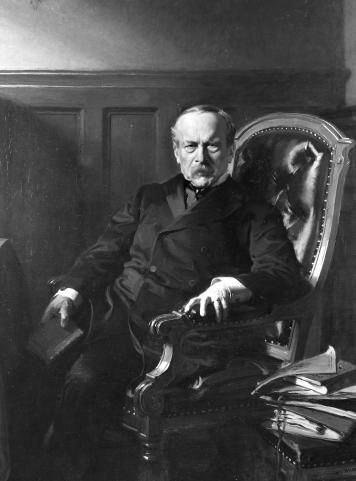All the King's Men' A search for the colonial ideas of some advisers and "accomplices" of Leopold II (1853-1892). (Hannes Vanhauwaert), 6. Baron Auguste Lambermont (1819-1905), The Anti-Slavery Conference and the Relaxing Relationship with Leopold II http://www.ethesis.net/leopold_II/leopold_II.htm#_ftn194 Lambermont in a 1895 letter to Henri Alexis Brialmont after the failed attempt to annex the Congo State by Belgium. WILLEQUET, J. Le baron Lambermont, 113-114.
Famous Auguste, Baron Lambermont Quotes
All the King's Men' A search for the colonial ideas of some advisers and "accomplices" of Leopold II (1853-1892). (Hannes Vanhauwaert), 6. Baron Auguste Lambermont (1819-1905), The Anti-Slavery Conference and the Relaxing Relationship with Leopold II http://www.ethesis.net/leopold_II/leopold_II.htm#_ftn194 Lambermont in his opening speech to the Antislavery Conference, WILLEQUET, J. Le baron Lambermont, 97.
Source: All the King's Men' A search for the colonial ideas of some advisers and "accomplices" of Leopold II (1853-1892). (Hannes Vanhauwaert), Preface:The Colonial Ideology of Britain's Leading Superpower http://www.ethesis.net/leopold_II/leopold_II.htm#2.%20 WILLEQUET, J. Le baron Lambermont, 9.
Source: New Africa; an essay on government civilization in new countries, and on the foundation, organization and administration of the Congo Free State, THE ORIENTAL SLAVE-TRADE, Page 132. https://archive.org/details/newafricaessayon00desciala/page/152/mode/2up Lambermont at the Berlin Conference.
